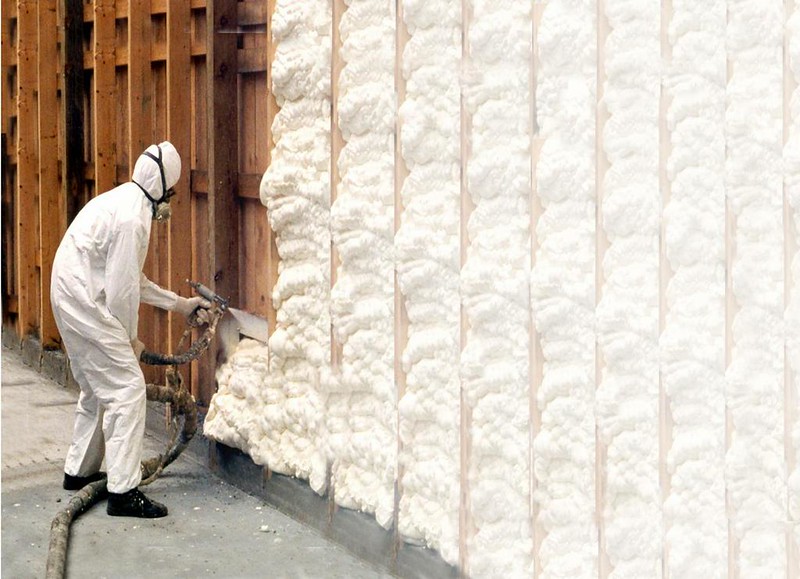Who Qualifies for a Boiler Replacement Grant in Ireland?
Replacing an old or inefficient boiler can be costly, but government grants in Ireland aim to ease this financial burden while promoting energy efficiency. Understanding who qualifies for these grants, what they cover, and how to apply can help homeowners make informed decisions about upgrading their heating systems and reducing energy bills.

Many households across Ireland face the challenge of maintaining aging heating systems that are inefficient and costly to run. The government has introduced financial support schemes to encourage homeowners to upgrade to more energy-efficient heating solutions. These grants are designed to reduce carbon emissions, lower energy consumption, and help families save money on heating costs over the long term. Knowing the eligibility criteria and application process is essential for anyone considering a boiler upgrade.
The Purpose Behind Boiler Grants in Ireland
The primary aim of boiler grants in Ireland is to support the country’s climate action goals by reducing household carbon emissions. Older boilers tend to be less efficient, consuming more fuel and releasing higher levels of greenhouse gases. By providing financial assistance for replacements, the government encourages homeowners to transition to modern, energy-efficient heating systems such as heat pumps or high-efficiency oil and gas boilers. These upgrades not only benefit the environment but also result in lower energy bills for households. The grants form part of a broader strategy to improve the energy performance of homes across the Republic of Ireland, making properties warmer, healthier, and more sustainable.
SEAI Home Energy Grants in the Republic of Ireland
The Sustainable Energy Authority of Ireland administers the Home Energy Grant scheme, which offers financial support for a range of energy efficiency improvements. Under this scheme, homeowners can access grants for insulation, heating system upgrades, solar panels, and heat pump installations. The boiler upgrade grant specifically targets the replacement of old, inefficient heating systems with modern alternatives that meet strict energy performance standards. Eligible heating systems include air-to-water heat pumps, ground-to-water heat pumps, and certain high-efficiency boilers. The grant amounts vary depending on the type of system installed and whether the property meets specific criteria. Additional bonuses may be available for homes in energy poverty or for properties that achieve higher energy ratings after the upgrade. The scheme is regularly updated, so checking the latest guidelines and grant amounts is important before proceeding with any work.
Who Qualifies for SEAI Grants?
Eligibility for SEAI boiler replacement grants depends on several factors related to the property and the homeowner. First, the property must be built and occupied before 2011, as the scheme targets older homes that are more likely to have inefficient heating systems. The homeowner must also be the property owner, though landlords may qualify under certain conditions if they meet additional requirements. The existing heating system must be at least 10 years old and in working order at the time of application. This ensures that the grant supports genuine upgrades rather than emergency replacements. Homeowners must use a registered contractor approved by SEAI to carry out the work, and the new heating system must meet the technical specifications outlined in the grant guidelines. Additional eligibility criteria may apply for certain grant types, such as income thresholds for enhanced support or requirements related to the property’s current energy rating. It is advisable to review the full eligibility checklist on the SEAI website or consult with an approved contractor before applying.
What Does the Grant Cover?
The SEAI boiler replacement grant covers a portion of the cost of purchasing and installing a new, energy-efficient heating system. The exact grant amount depends on the type of system chosen and the property’s circumstances. For example, grants for heat pump installations are typically higher than those for high-efficiency boilers, reflecting the greater upfront investment required for heat pump technology. The grant does not cover the full cost of the installation, so homeowners should budget for the remaining expenses. In some cases, additional grants or bonuses may be available, such as support for low-income households or properties located in areas identified as being in energy poverty. Homeowners should obtain detailed quotes from approved contractors and factor in both the grant amount and the out-of-pocket costs when planning their upgrade.
How to Apply for a Boiler Replacement Grant
The application process for a boiler replacement grant involves several steps. Homeowners should begin by contacting an SEAI-registered contractor who can assess the property and recommend suitable heating system options. The contractor will provide a detailed quote and help complete the necessary application forms. Once the application is submitted and approved, the contractor can proceed with the installation. After the work is completed, the homeowner must submit proof of payment and any required documentation to SEAI. The grant is typically paid directly to the homeowner after the installation is verified. It is important to follow the application process carefully and ensure all documentation is accurate to avoid delays or rejection. Homeowners should also be aware that grants are subject to availability and may be adjusted or closed depending on government funding.
Additional Considerations for Homeowners
Before applying for a boiler replacement grant, homeowners should consider the long-term benefits and costs associated with different heating systems. Heat pumps, for example, offer excellent energy efficiency and lower running costs but require a higher initial investment. High-efficiency boilers may be more affordable upfront but could result in higher fuel costs over time. It is also worth exploring other energy efficiency measures, such as insulation upgrades, which can enhance the performance of a new heating system and maximize energy savings. Homeowners should obtain multiple quotes from approved contractors, compare options, and ensure that any chosen system meets their household’s heating needs. Consulting with an energy advisor or contractor can provide valuable insights and help homeowners make informed decisions.
Boiler replacement grants in Ireland offer valuable financial support for homeowners looking to upgrade their heating systems and improve energy efficiency. By understanding the eligibility criteria, application process, and available grant amounts, homeowners can take advantage of these schemes to reduce their carbon footprint and lower their energy bills. With the right planning and guidance, upgrading to a modern, efficient heating system can be a worthwhile investment for both the environment and household finances.




